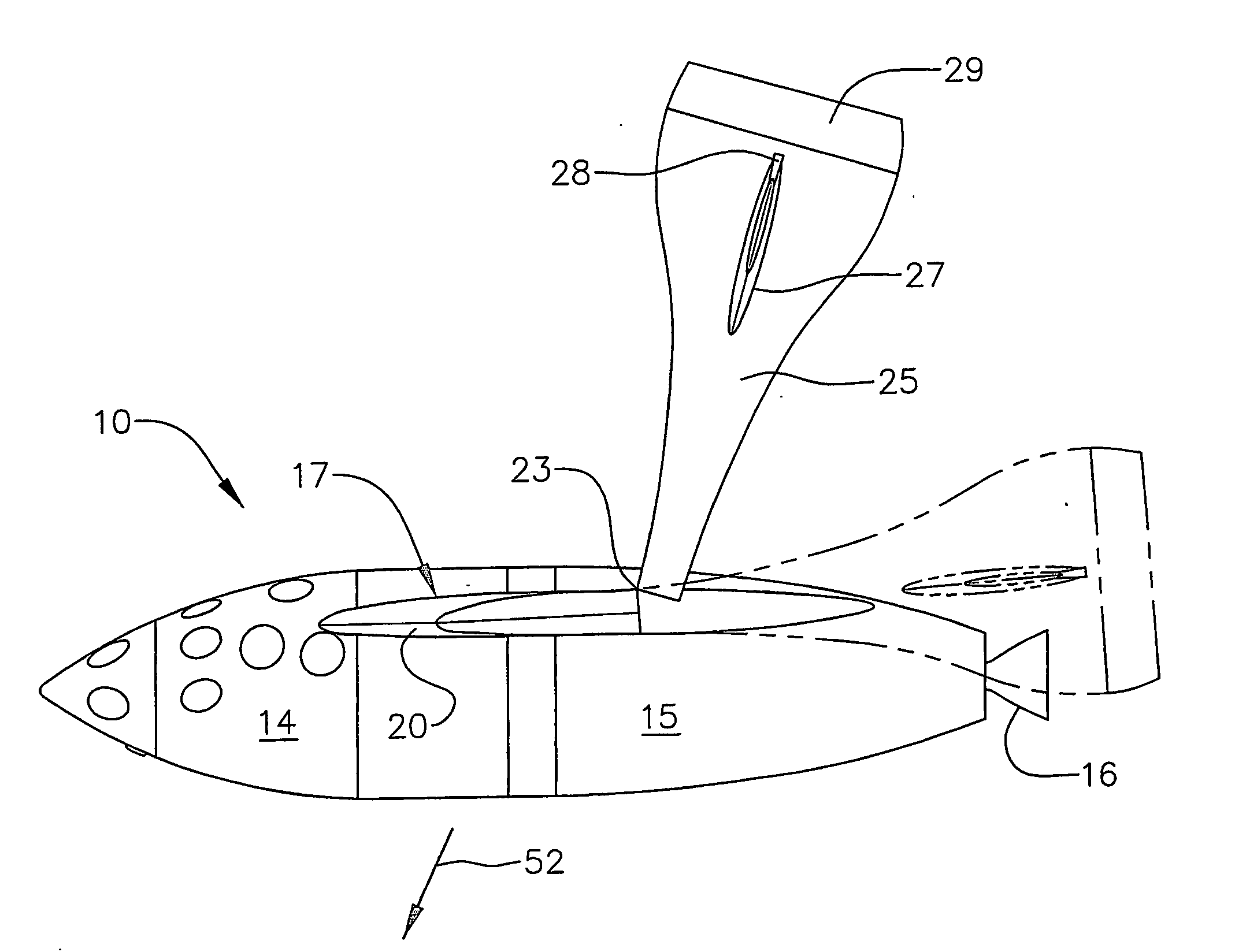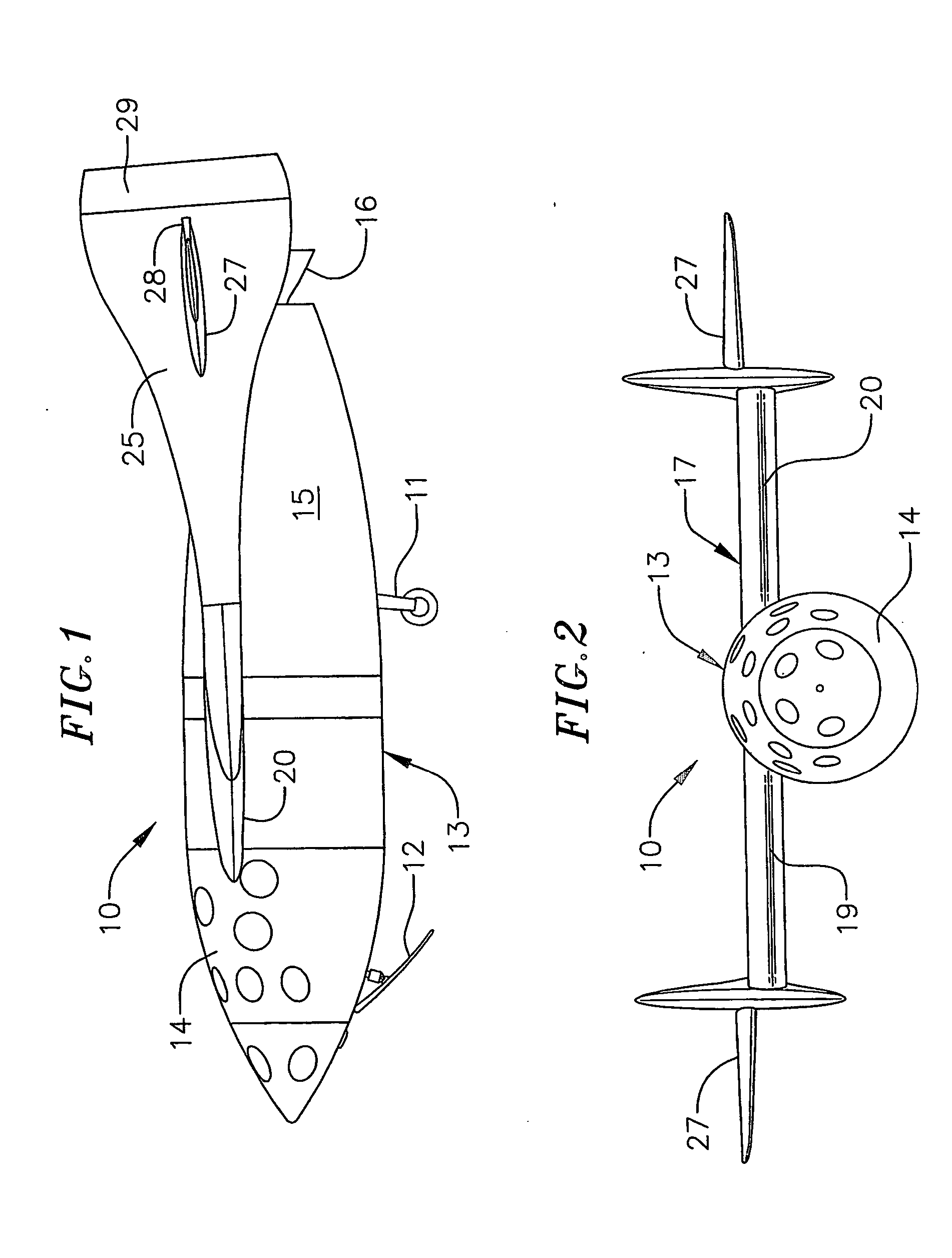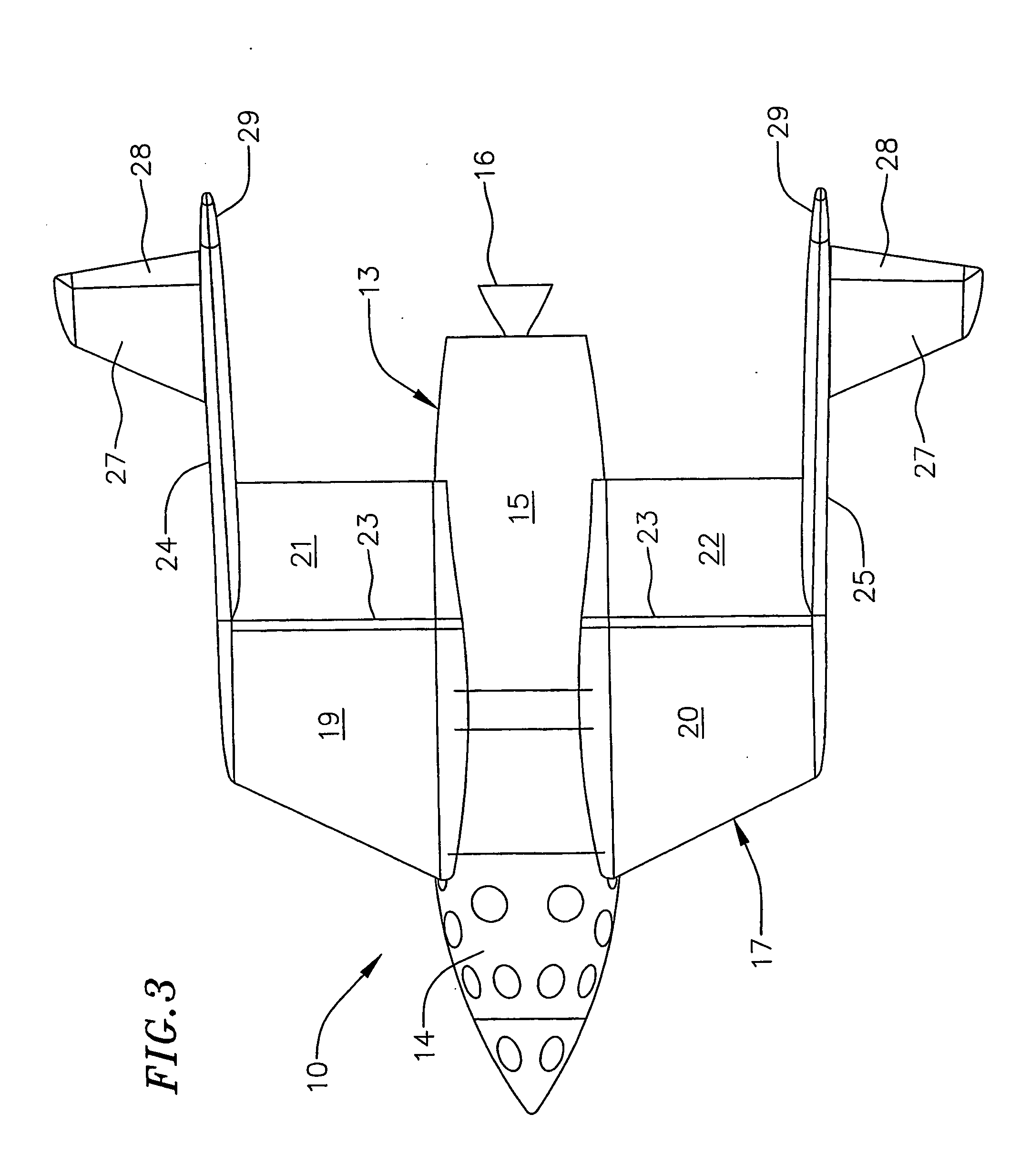Winged spacecraft
- Summary
- Abstract
- Description
- Claims
- Application Information
AI Technical Summary
Benefits of technology
Problems solved by technology
Method used
Image
Examples
Embodiment Construction
[0013]FIGS. 1-3 show a suborbital spacecraft 10 as configured for rocket-powered flight into space, for subsonic flight after reentry, and for landing. The spacecraft is shown in FIG. 1 with a rear landing gear 11 and nose skid 12 as extended for landing, but those components are retracted in the other views.
[0014] The spacecraft has a fuselage 13 with a pilot compartment 14 at its forward end. An aft fuselage portion 15 houses and mounts a hybrid-fuel rocket engine, a rear nozzle 16 of which is shown in the drawings. A wing 17 has right and left forward sections 19 and 20 fixed to the fuselage, and aft right and left sections 21 and 22 which are coupled together, and upwardly movable about a hinge line 23. Aft sections 21 and 22 are about one-third of the total width or chord of the wing. Rigidly secured to the outer ends of the aft wing sections are rearwardly extending right and left tail booms 24 and 25.
[0015] Extending outwardly from, and rigidly secured to the outer sides of...
PUM
 Login to View More
Login to View More Abstract
Description
Claims
Application Information
 Login to View More
Login to View More - R&D
- Intellectual Property
- Life Sciences
- Materials
- Tech Scout
- Unparalleled Data Quality
- Higher Quality Content
- 60% Fewer Hallucinations
Browse by: Latest US Patents, China's latest patents, Technical Efficacy Thesaurus, Application Domain, Technology Topic, Popular Technical Reports.
© 2025 PatSnap. All rights reserved.Legal|Privacy policy|Modern Slavery Act Transparency Statement|Sitemap|About US| Contact US: help@patsnap.com



